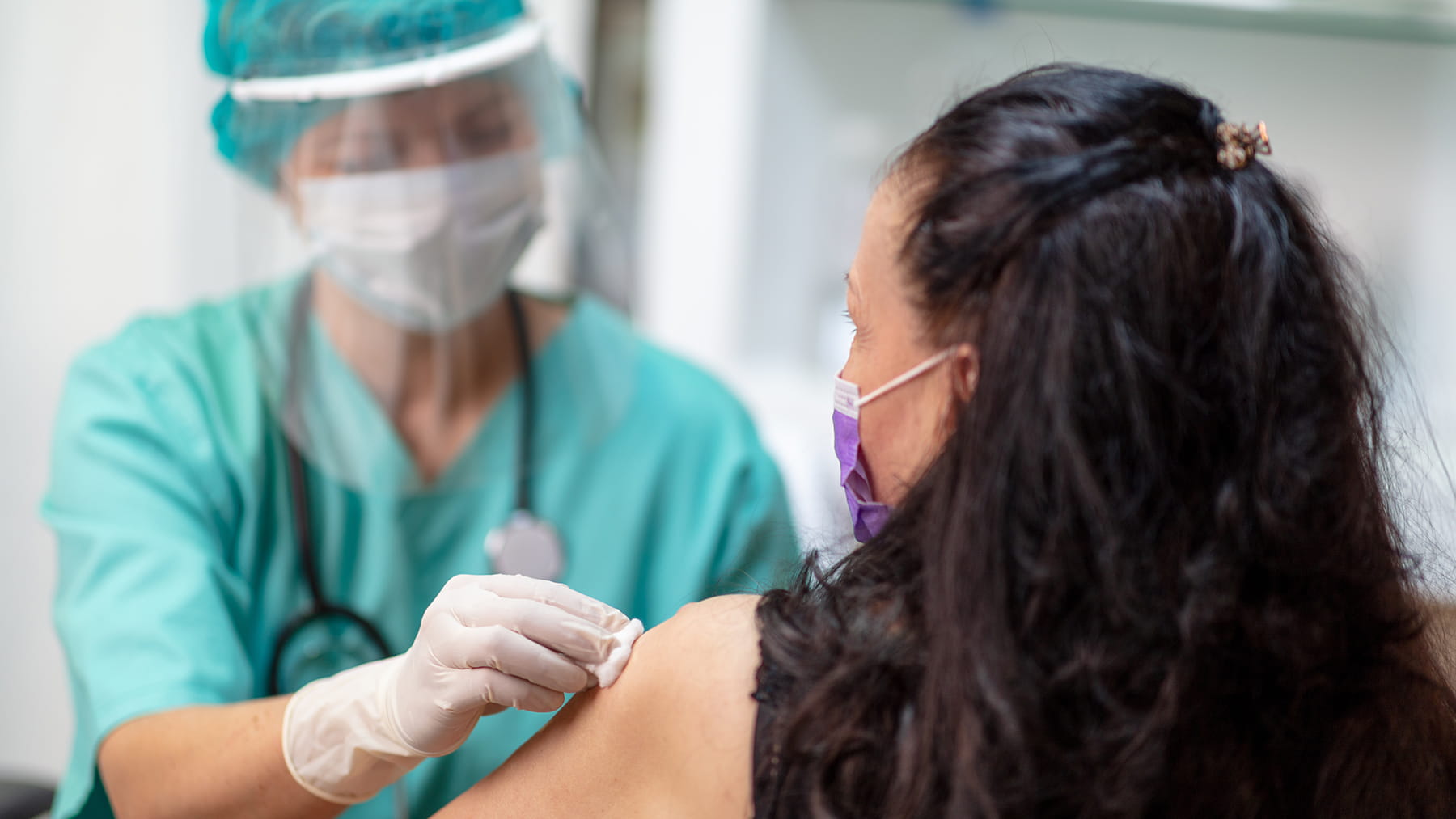Now that most everyone age 16 and up is eligible to get a COVID-19 vaccine, health care providers are starting to see an increase in people fainting when they get their shot. It has nothing to do with what’s in the syringe, and everything to do with what’s happening before the shot.
Simply put, younger people are more likely to skip meals and not be well-hydrated before getting their vaccine. They’re also more likely to be anxious because many haven’t had as much experience around needles as middle-aged and older people have.
Both factors can increase the risk for a sudden drop in heart rate and blood pressure in reaction to stress, such as the sight of blood or a needle going into our arm. It’s what we call vasovagal syncope, or fainting.
Be prepared
The best way to avoid this reaction is to have something to eat and drink before you go for your vaccine. It’s good advice before any injection, blood work or blood donation too.
Wear a short-sleeved shirt. Most vaccine clinics are in public areas and the vaccine needs to go into your deltoid muscle in the upper arm.
Another important tip — relax your arm. Tension in the muscle leads to more soreness later.
If you do happen to start feeling lightheaded, put your head down toward your knees.
What else should I expect?
Every vaccine clinic is different. The clinics we operate at The Ohio State University Schottenstein Center and Ohio State East Hospital require you to wear a mask and have your temperature taken. After checking in, you’re seated at a table for the duration of your visit. We verify your medical information and answer any questions before administering the vaccine. Afterward, you remain seated for 15 minutes to ensure you’re doing well. If a second vaccine dose is needed, we get your appointment scheduled before you leave.
After the vaccine
Plan to take it easy and get one or two hours of extra sleep that night. About 18-24 hours after the vaccine, you might experience some side effects such as a sore arm, fatigue, headache, muscle aches, fever and chills. It’s best to take an over-the-counter pain reliever, such as acetaminophen or ibuprofen, at the onset of symptoms so they don’t become worse. The symptoms often come on overnight, so I tell people to have the medication and a glass of water by the bed. We’ve seen that while older people seem to have more severe illness from COVID-19, younger people tend to have stronger reactions to the vaccine.
Be informed, get vaccinated
It’s very important for young, healthy people to get vaccinated, even if they don’t think they’re at risk themselves. When the large majority of the community is protected, then people can get back to the things they enjoy such as eating in restaurants, going to concerts and attending large family gatherings.
If you’re still hesitating, I urge you to talk with your doctor and your friends who have done it. As I tell my patients, the vaccines are safe. Millions of people have already received them with very few allergic reactions. It’s more common to see anxiety-related reactions to the needle itself.
So remember, eat a snack, hydrate, then vaccinate!
James Allen is a critical care specialist at The Ohio State University Wexner Medical Center and a professor at the Ohio State College of Medicine.





